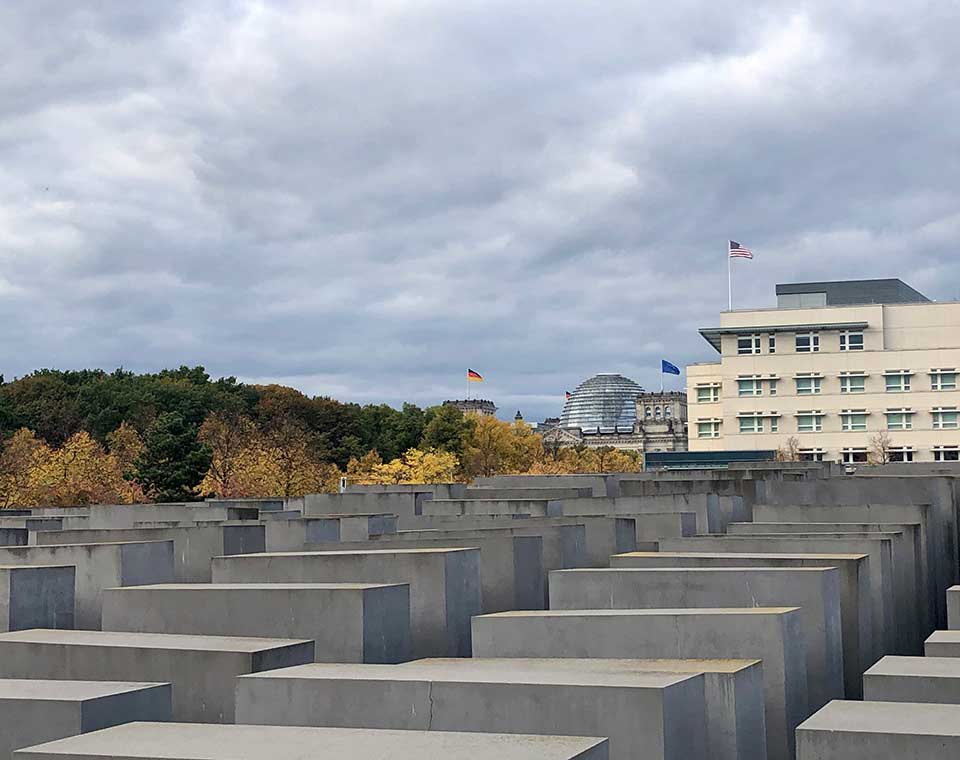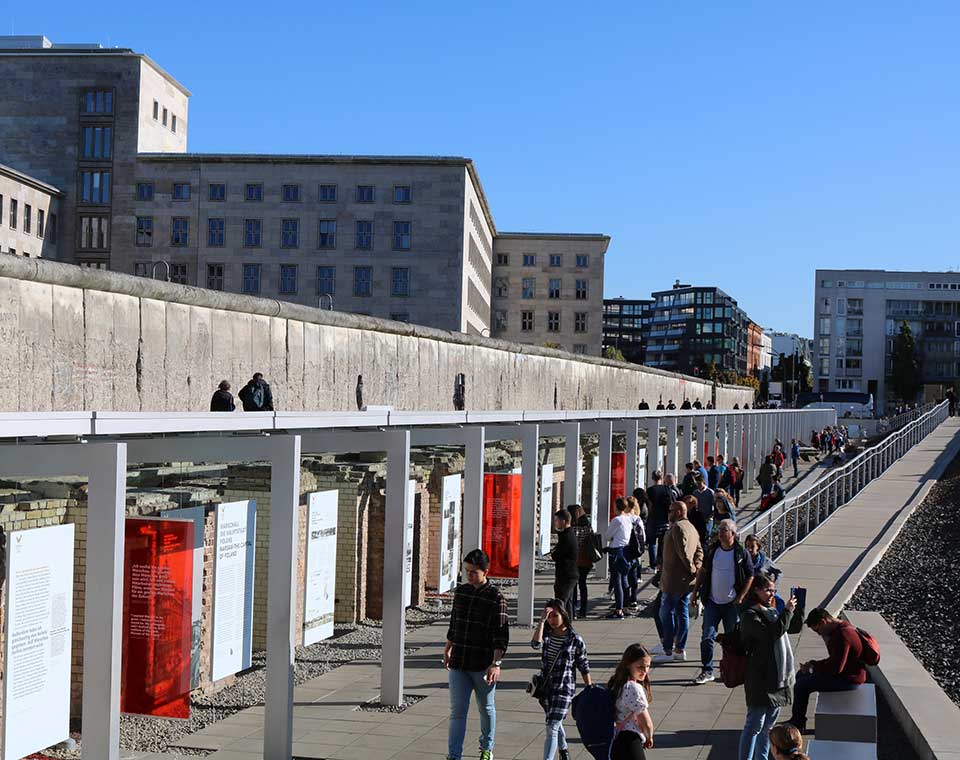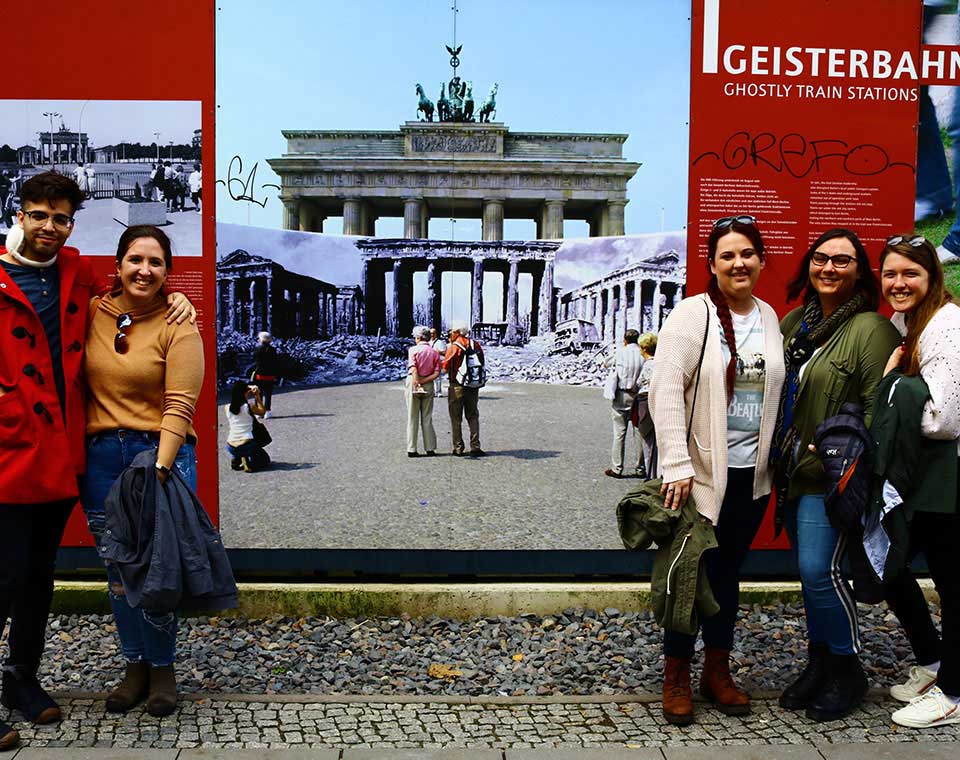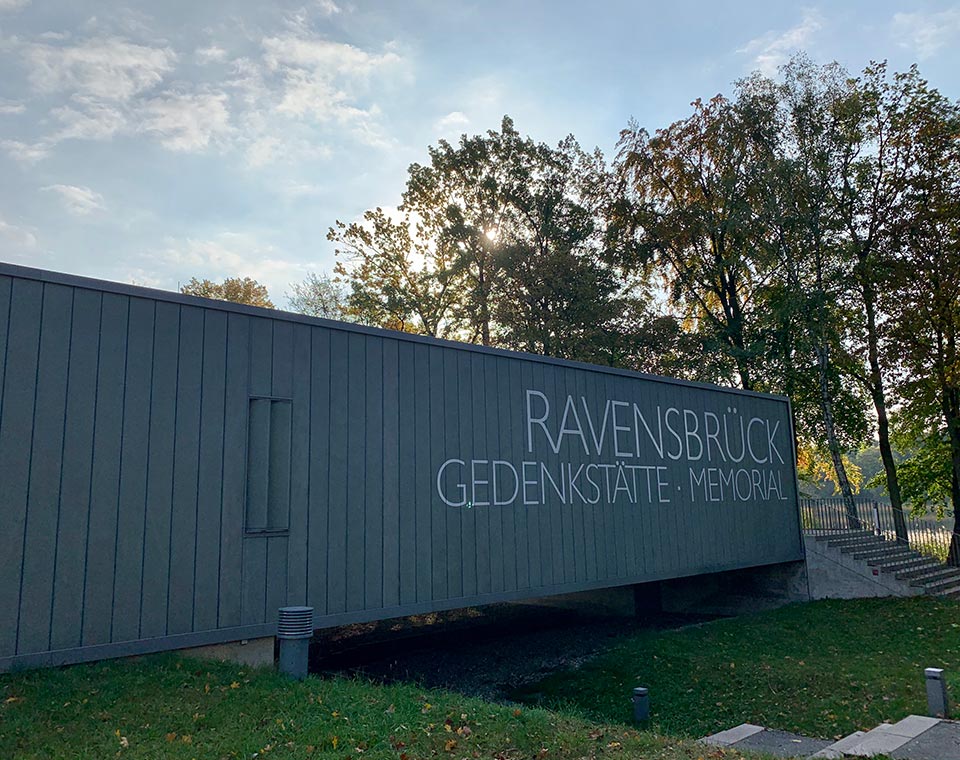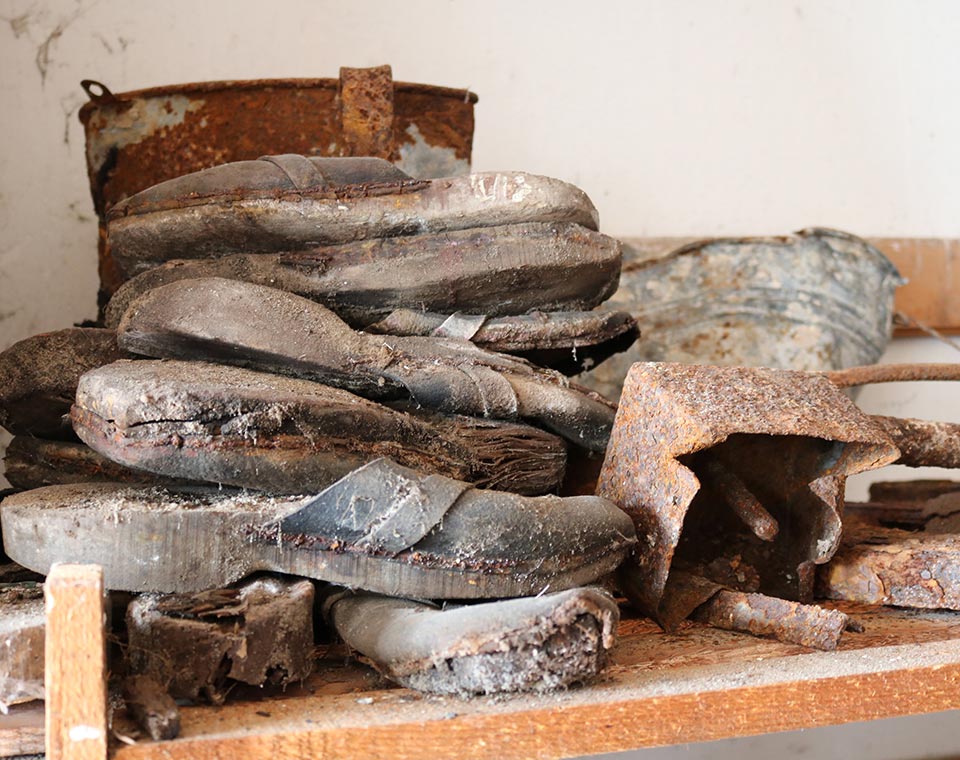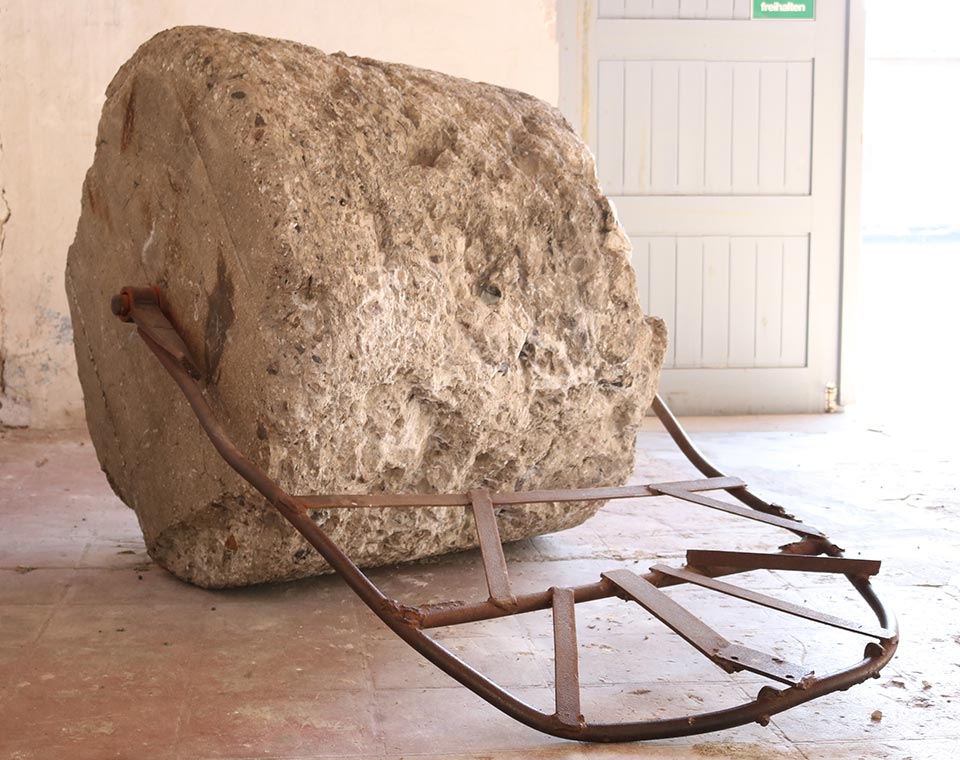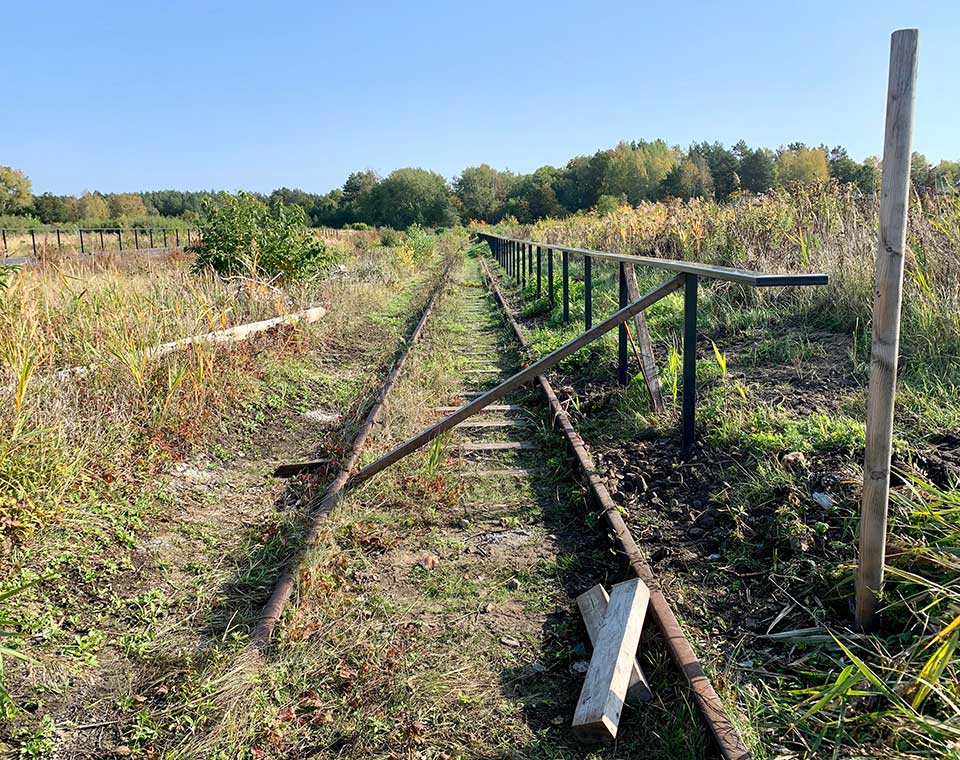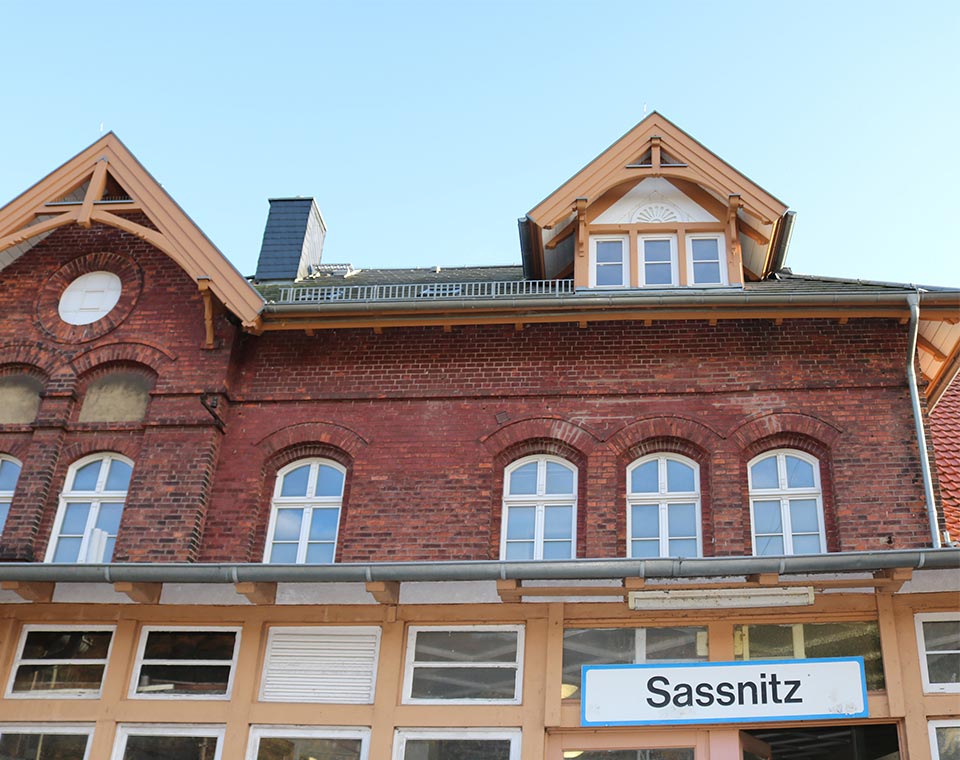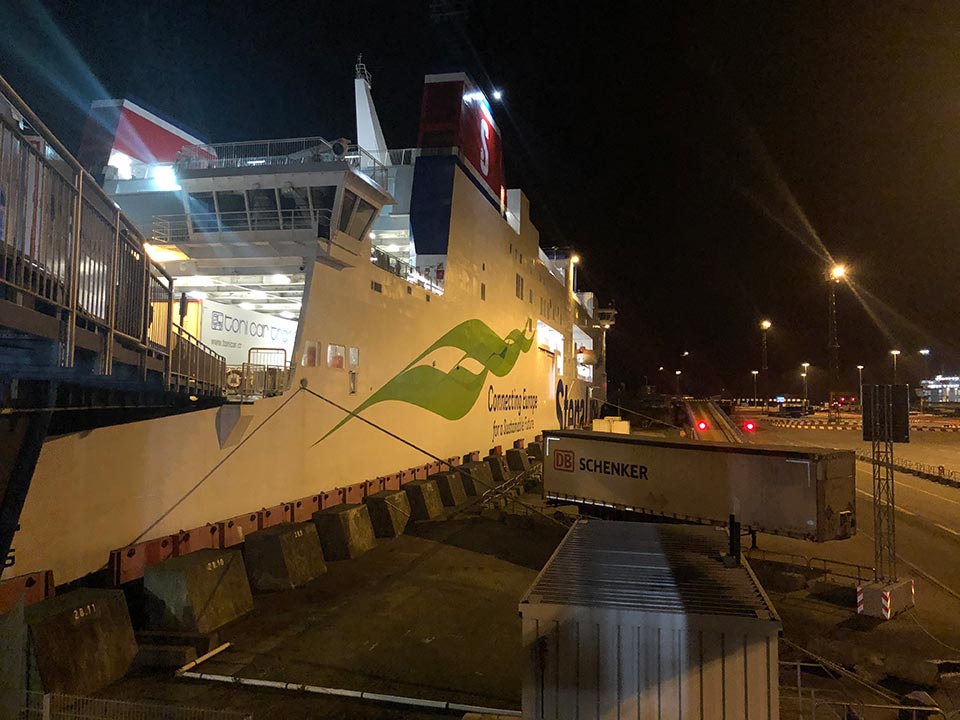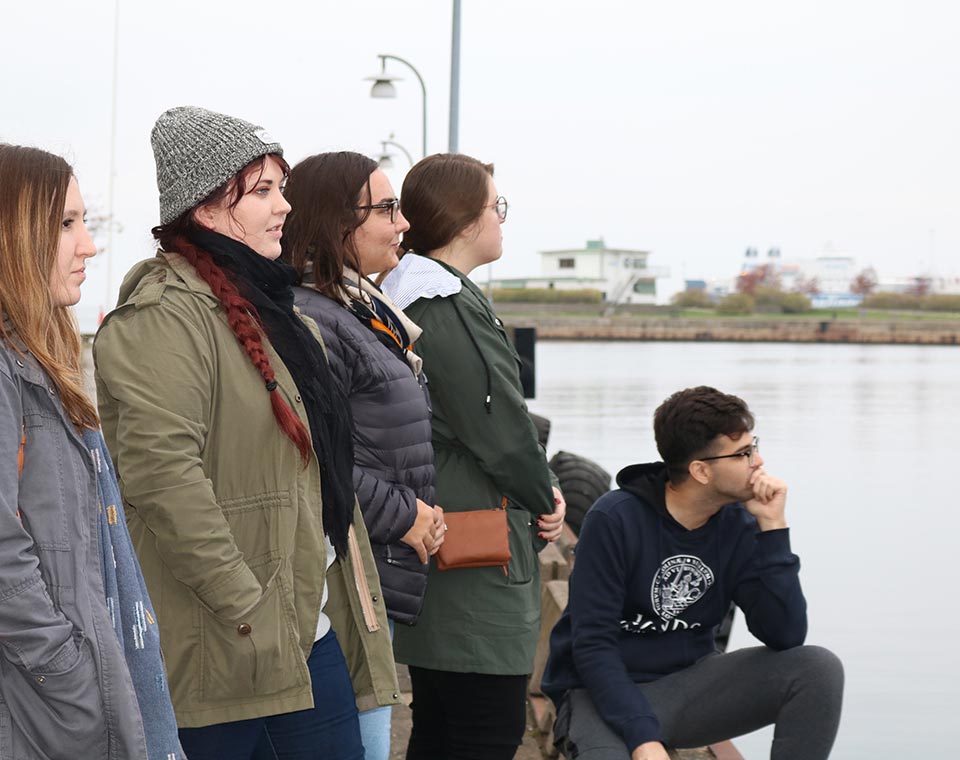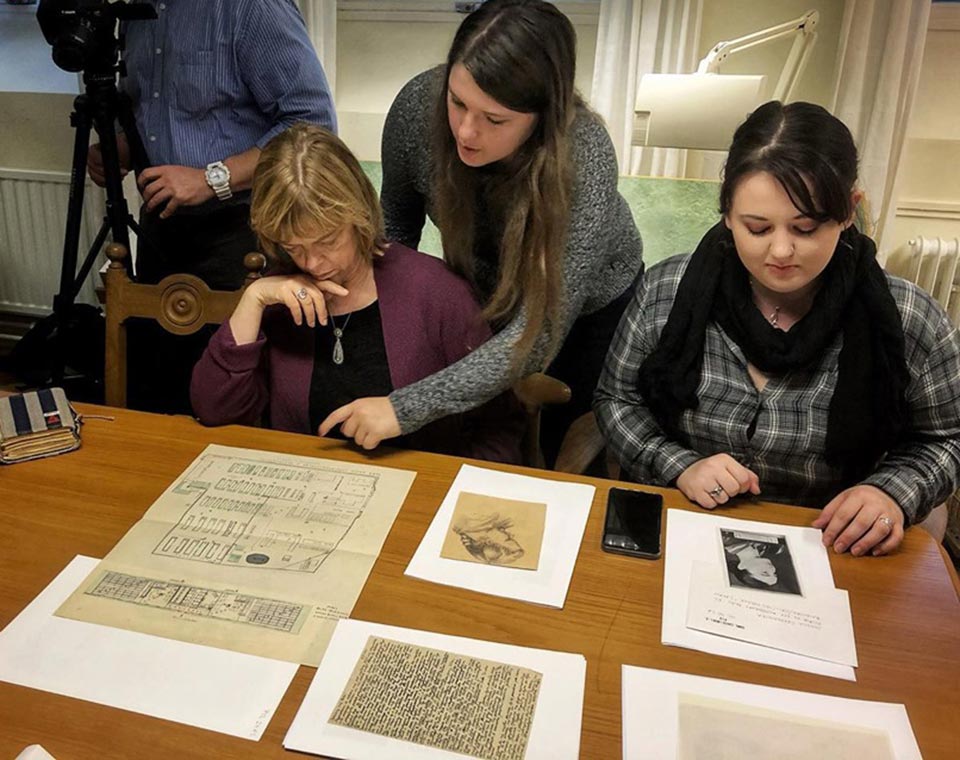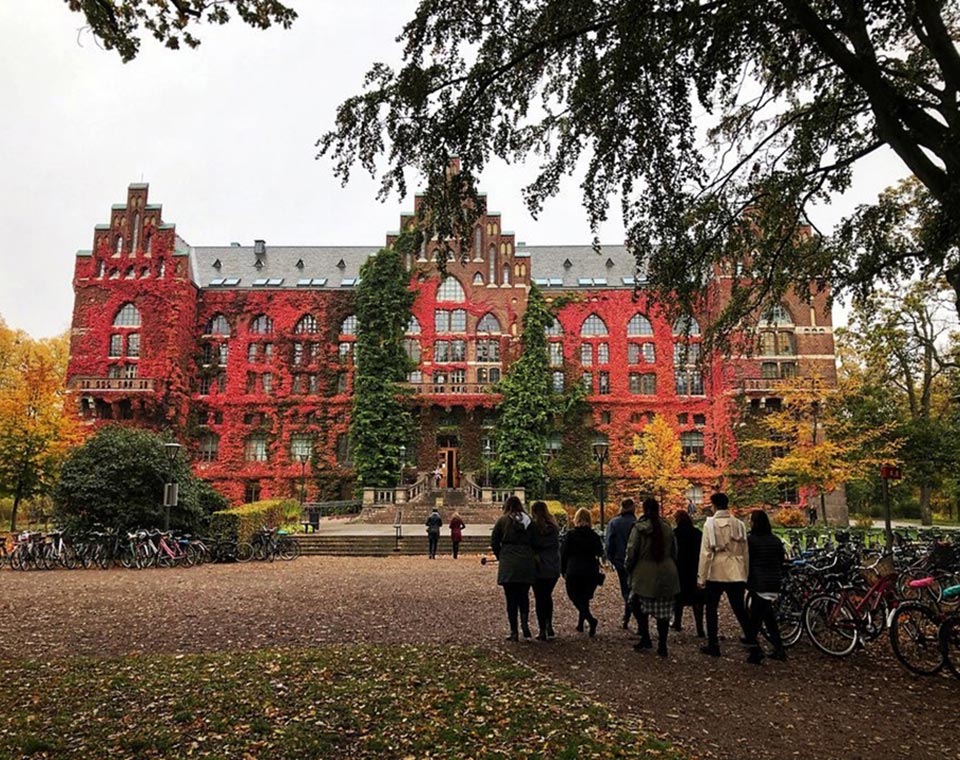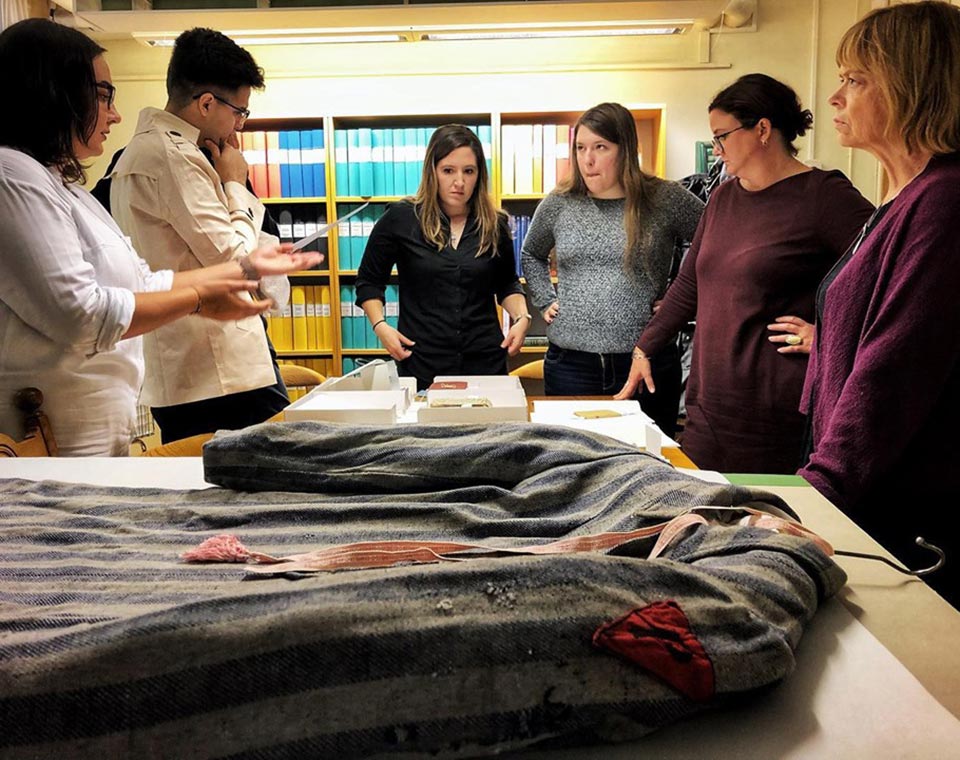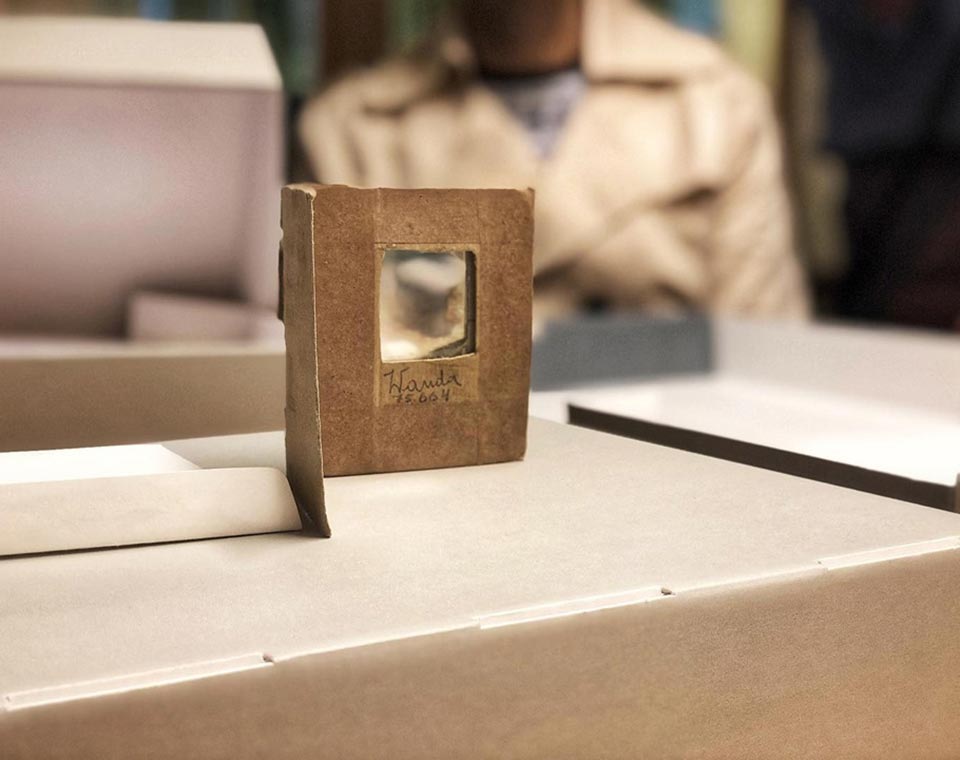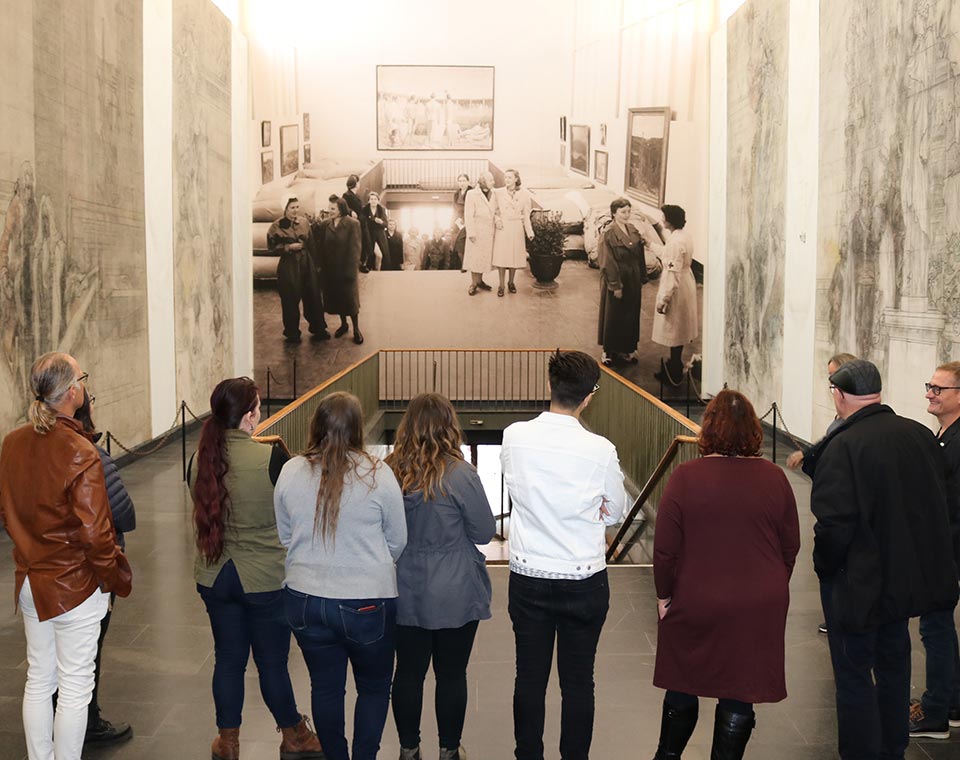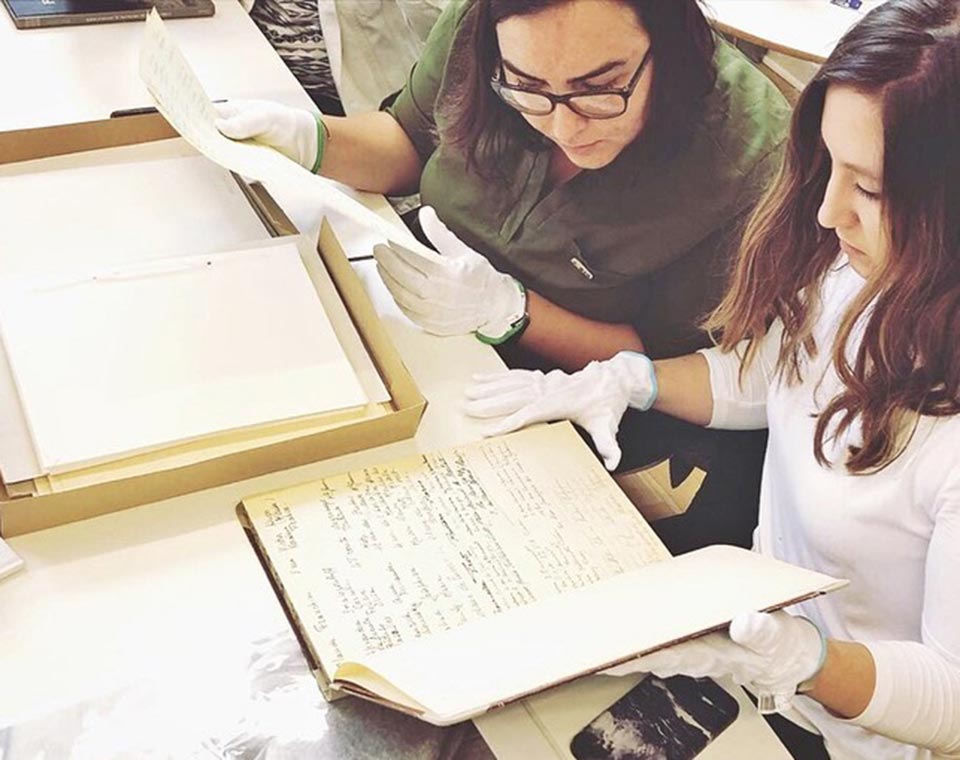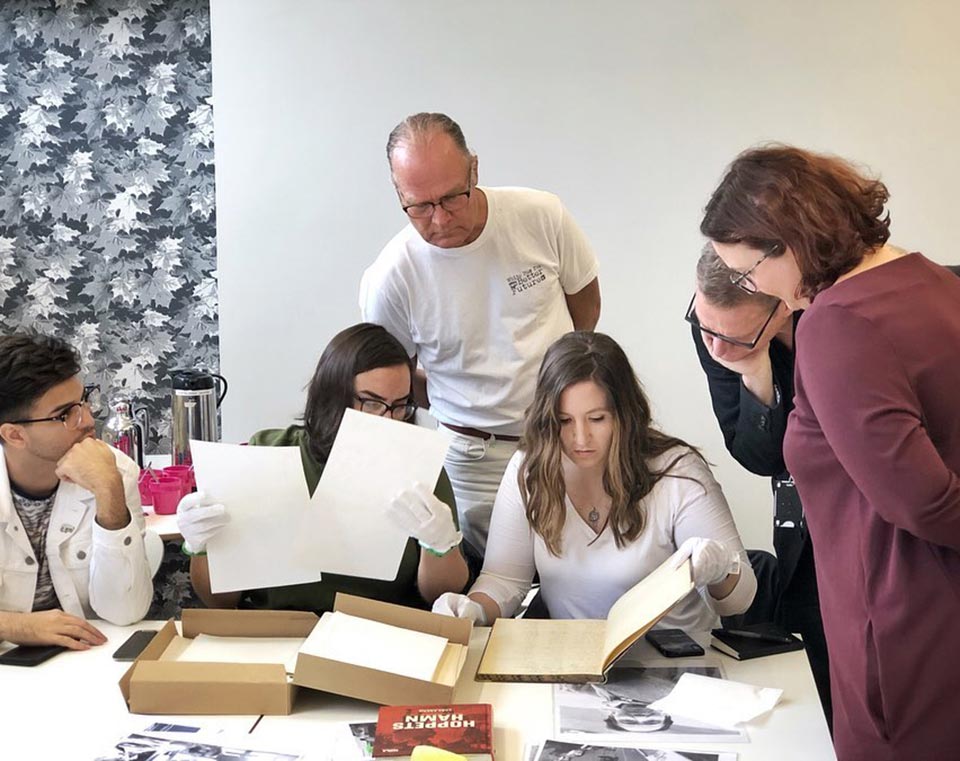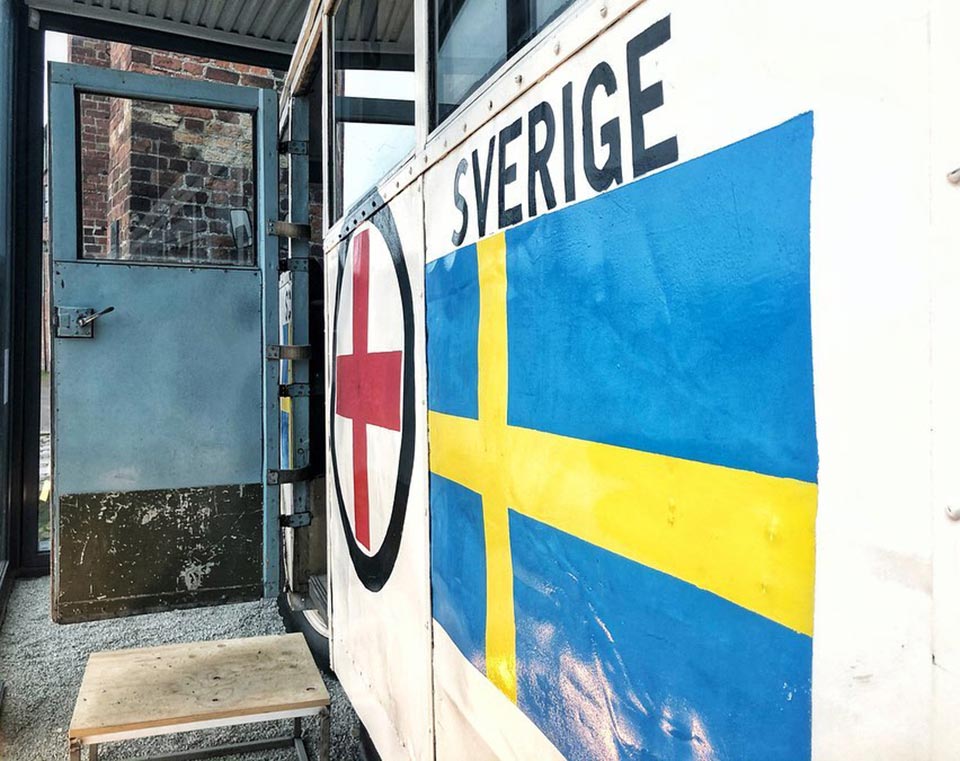Research & Exploration
In October 2019, the Wilson G. Bradshaw Library’s Archives, Special Collections, and Digital Initiatives team traveled to the Ravensbrück Memorial Site in Germany on a research and fact-finding mission aimed at faithfully recounting the stories of the women and children who survived Ravensbrück concentration camp.
From there, the team traced the steps of the survivors all the way to Malmö Harbor in Sweden, the place where they found freedom. The team’s journey culminated in the inclusion of many of the survivors’ personal effects in our Spring 2020 exhibition, To Life: The Liberation of Ravensbrück. The research trip was made possible due to the generosity of the Seidler Fund and the FGCU College of Arts & Sciences.
Berlin, Germany: October 11-13, 2019
“Starting the day off at the Topography of Terror allowed us to begin with not only the history of the Nazi Regime but also the Cold War history that is still prevalent within very walls of the buildings which surround our hotel in East Berlin… Each of us was struck differently by what we experienced, but isn’t that the beauty in a memorial? To impact each person separately? I think that speaks to the ingenuity of those who created it. ”
“Another big moment for me today was our visit to the Memorial to the Murdered Jews of Europe. The monument is imposing, eerie, and deeply disturbing to stand inside. The isolation imposed on any person to stand in those walls is meant to imitate the growing pressures of totalitarian government; the slow descent into the towering sections evokes a sense of growing dread as you move further into the structure. I was reminded of the old adage of a frog being boiled slowly in water.”
Ravensbrück Concentration Camp, Germany: October 13, 2019
“The tour of the camp itself was overwhelming to say the least. I was thoroughly impressed, however, by Mattias’ unflappable optimism even as he discussed the horrors of the mass murders at the camp. He would never leave us on a negative note; even after the crematorium, he had us take a seat while he told us the story of a successful escape across the lake. I feel this reflects our goals with the To Life exhibition almost exactly; we have decided to focus on the importance of the survivors as opposed to the horrors of the Holocaust.”
"The sun sets the leaves to gold as they make their dance to the ground, the water glistens, the air cool. There is a stillness here, hardly a sound. The pain is gripping, the beauty haunting. The lake, the trees. The wall and the gate. There once were people. But now they’re gone. The leaves fall around us. Some quickly some gradual. Is it wrong to marvel? There was so much suffering. All within view of a chapel. To walk in their footsteps. To breath their air. We’ll never feel what they felt. But their memory we’ll share. Maybe I was wrong, it is beautiful. They were beautiful and strong. The trees have not forgotten. The ground remembers the lost. Watch them soar through the air. In reds and golds they are crowned. So kick up the leaves, Make them fly. Let them live, One last time."
Ferry Ride, Germany to Sweden: October 14, 2019
"We were shown the true character of German people on the day we were leaving it. This really showed all of us in the group the helpful spirit that is within the German citizens….We as a group traveled to Berlin to study the history of Germany, but what we didn’t know is we would also be shown what it means to be German in today’s world. You can study the past without understanding the present. The previous day we learned about many German bystanders who did horrible things during WWII. It was nice that the following day we were able to experience the kindness and helpfulness that German citizens had for us."
“A full day of travel. Mel says we were all troopers. I suppose we were, but perhaps that gives us too much credit. It is difficult to complain while onboard a European train whose path offers a full view of the German countryside: green rolling hills, cozy villages, and cows... “Arrived in Lund, Sweden, by ferry. And what a ferry ride. How fortunate am I to be a part of a group of genuine and congenial people. How fortunate am I to sail through the Baltic Sea surrounded by friends, by family, who would sacrifice the warmth of their own bodies for mine.”
Lund, Sweden: October 15-19, 2019
“All the work and research that I had been working relentlessly at for more than 10 months at this point finally came to its climax today. Today was the day we went to Lund University’s Archives and Special Collections.”
"We saw many personal items that mothers made for children, little meaningful items from home, and religious pieces that the women were able to hide in their clothes in order to keep them through the duration of the camp. We take our material items for granted and never really think about how much these things around us mean. If we had to pick one item that kept our hope alive, what would it be?"
Malmö, Sweden: October 19-22, 2019
"Just standing there, behind a sheet of glass, at the entrance of a towering castle
in which the women of Ravensbrück stayed to recuperate after their mission. To actually
see it with my own eyes, so close to me, brought back the emotions I felt at seeing
the tiny handwoven cat [at Kulturen]. What joy they must have felt at walking the
very steps we were walking, knowing, though perhaps not all of them, that their nightmare
was at last over."
“Coming full circle was such a relief, which I’m sure the women and children felt as well when they first arrived. Being able to walk in the footsteps of the women and children from Ravensbrück has helped me feel closer than ever to Joanna and the feeling of freedom that she must have felt must have been overwhelming, a feeling I came to know very well during this trip.”
“We would never all be together again in Europe, like this, together and working towards a common goal of bringing to life such a meaningful story of multitudes of people... The fact that this was it settled into my chest painfully. Although I’ll always have the memory of this trip, this part of it was over. Our job was done, which was great, but there’s something so definite about an ending. It can be reopened, but never experienced in the same way again.”
-Abigail Winslow
Next: Explore the Swedish Red Cross Rescue Action
CLICK HERE TO SUPPORT the archive's WORK
When making a contribution please be sure to select “library archives“ for your gift designation. We thank you so much for your support!


